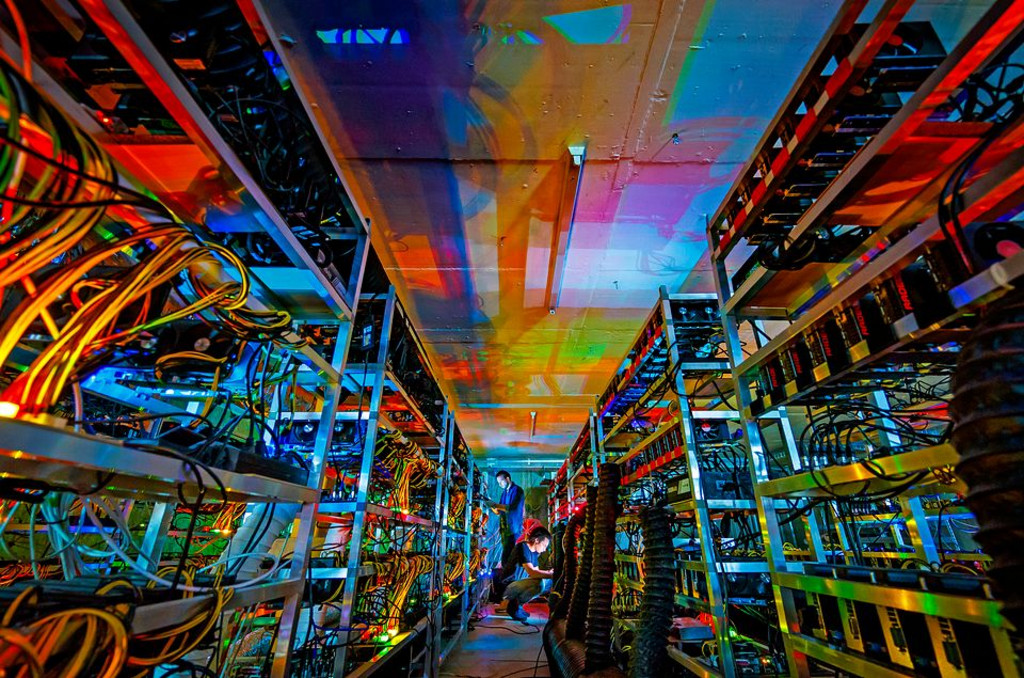The internet has seen several revolutions, not least the 1989 invention of the Transmission Control Protocol / Internet Protocol (TCP/IP) which enabled the creation of a worldwide system: the web. Today, it is the decentralised encryption system termed ‘blockchain’ that is marking the beginning of a new era. “You could compare it to the invention of mathematics after the invention of writing,” says Shaban Shaame from Geneva. Shaame, a 38-year-old entrepreneur, created his own blockchain for use in developing video game activities.
A blockchain is a ledger shared between several computer devices. Any modifications made to this ‘genome’ must be validated by all of its participants. It is for this reason that it is considered impossible to violate the system. This technology enables web users to exchange information, goods and services instantaneously, without involving any intermediary authority. Contracts are inscribed on the blockchain using ‘tokens’ and operations are settled using digital currency, produced by the blockchain. “This system will enable Uber to be bypassed,” explains technology and finance specialist, Vincent Pignon. Indeed, a blockchain effectively connects the customer and the driver directly, without the need to access a commercial application. Pignon is the head of Geneva-based company Wecan, dedicated to blockchain. He is also employed by the city-state of Geneva to support the canton in promoting this new technology.
In reality, there is not just one blockchain in the world, but thousands. Their owners, the Ethereum foundation for example, are in competition with each other to make their protocol the most widely used. It is in this context that Switzerland appears to have become an El Dorado of companies and foundations operating in the sector. In 2018, Federal Councillor and Economics Minister Johann Schneider-Ammann made public his ambition to make Switzerland a ‘blockchain nation’. In contrast to the United States, where strict rules have been established in this area, Switzerland has decided not to create any specific legislation.
Zug invites citizens to pay in bitcoins
Several administrations have implemented actions intended to facilitate and oversee the development of this concept. In the city of Zug, citizens can pay for administrative procedures using bitcoins, the most widely used cryptocurrency. In 2014, Zug saw the first instance of fundraising for a blockchain with the launch of Ethereum and its digital currency, the ether. In plain language, shareholders invested in this project with classic currency, and they received ethers in exchange. In Geneva, the Directorate General for Economic Development has published a guide dedicated to the issuing of cryptocurrencies and their tax treatment. Facebook has chosen Geneva as the central home for its upcoming and already controversial cryptocurrency, Libra, for which operations are led via a subsidiary – Libra Network – and an association. “Facebook considered that the other blockchains and their currencies were not fast enough. Their plan is to offer an optimal payment and money transfer system to their 2.3 billion users,” explains Pignon.
Returning power to the people of the world
Shaban Shaame welcomes the arrival of Facebook’s Libra because Facebook is offering to entrust the management of this project to an association made up of numerous actors, such as PayPal and Visa. Libra would also be supported by several strong currencies. It is this decentralisation that is at the heart of the blockchain project. It originated in 2008 with the bitcoin, a protocol created by cyber-punks as a reaction to the financial crisis, with the aim of regaining a handle on a financial system that was out of control.
According to the head of EverdreamSoft, the diffusion of this technology will have a tremendous impact. Blockchain will place more power in the hands of the world’s citizens, who will be able to participate in exchanges and value creation without the use of banks, notaries and administrative authorities. These connections will take place in a new legal and social environment. “Each blockchain will offer a political system to its users, for example with social rules like a tax intended for use in pension insurance,” says Shaame. Collective operations will be created above and beyond borders. Each person will be able to participate by providing work, funding or even simply promotion. As such, a visitor to a site could be paid in cryptocurrency.
Certificate access in just one click
A blockchain provides reliable and up to date information. In Geneva, the commercial register is accessible in just one mouse click via the Ethereum system. Another example would be the trade in raw materials, which involves a host of partners and physical documents. A blockchain will simplify this business. More broadly speaking, civil and commercial records and CVs could be consulted using blockchains, all via smartphone. This is the idea behind a solution developed by Wecan, in collaboration with the canton of Valais and a Swiss insurance company. Mountain Pro will enable a client to instantly find out whether or not a mountain guide possesses the necessary authorisations to practise, through verifications conducted at source using an insurance company, for example. A blockchain will also guarantee the sustainability of virtual items: for instance, EverdreamSoft offers the purchase of digital video game figurines to its clients. A ‘token’ describes the object in full and validates the act of ownership using a code. “Blockchain will be the notary of a new economy,” claims Shaame. Bitcoin alone, however, requires an enormous level of energy to function: 0.12 % of world electricity consumption in total. But this analysis fails to account for savings resulting from blockchain on a global scale, argue some specialists.
Cryptocurrencies: the driving motor behind blockchain
Exchanges take place using bitcoin or ether, currencies which are notably used as remuneration for the people who stock blockchain ledgers. Indeed, founded in 2013 in Zug, the company Bitcoin Suisse offers the purchase, exchange and storage of its clients’ cryptocurrencies, of which it handles 125 types. A pioneer in Zug’s Crypto Valley, this company has seen its employee numbers quadruple between the beginning of 2018 and July 2019. In 2018, it reported a net income of 43.7 million francs, according to the head of marketing, Marc Baumann. The city of Zug in fact uses a digital platform developed by Bitcoin Suisse for its cryptocurrency transactions with its citizens. For the time being, various technological and legal monitoring reasons mean that the use of cryptocurrencies remains complex. It is for this reason that platforms such as Bitcoin Suisse offer to handle transfers for their clients. This is also what Facebook intends.

![[Translate to en:]](/fileadmin/_processed_/9/e/csm_maggi-flasche-geneigt_d99b6f4bac.jpg)










Comments
Comments :